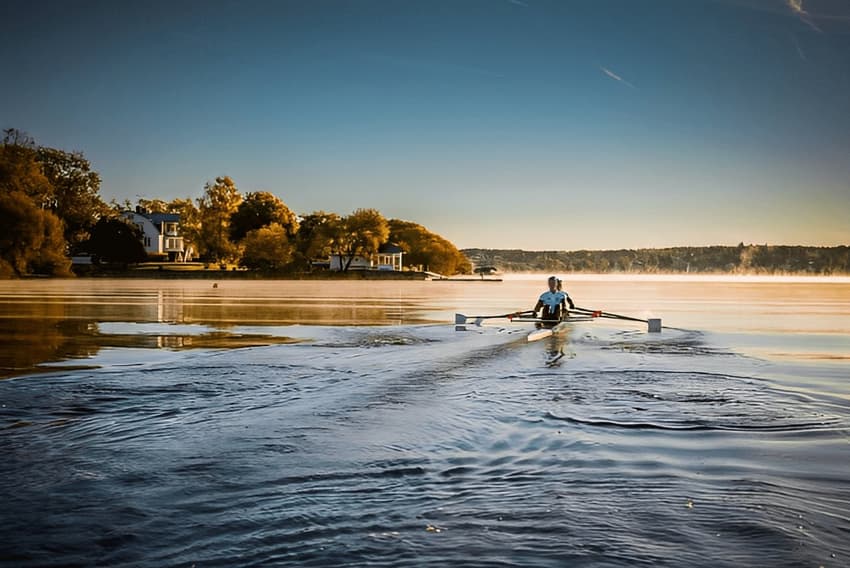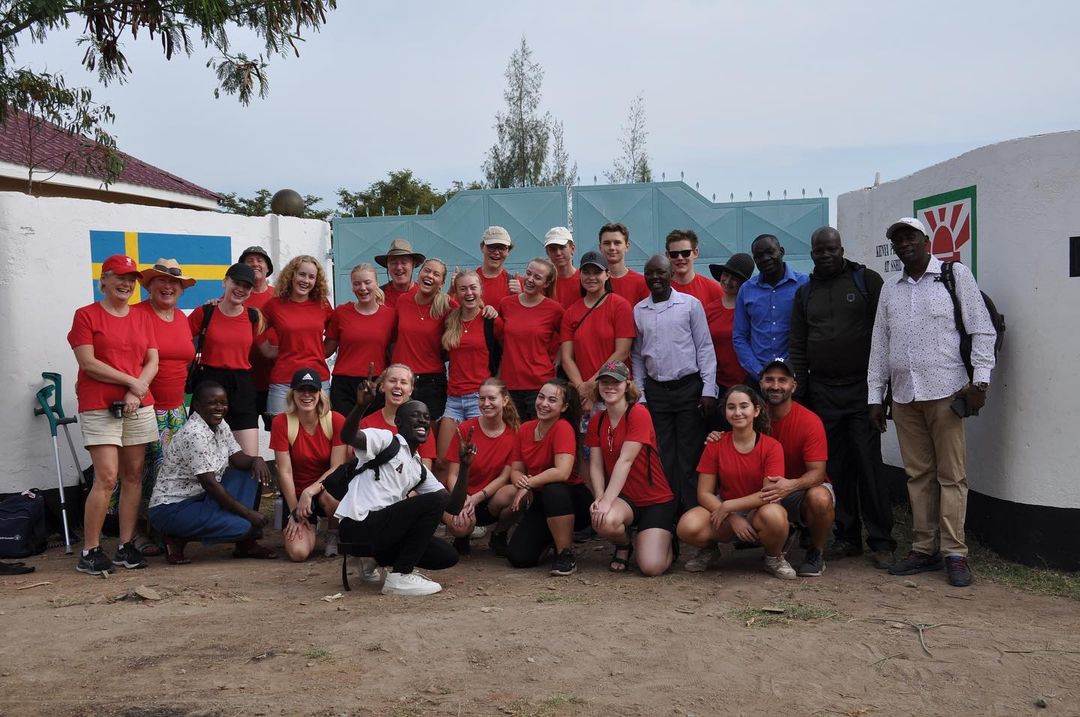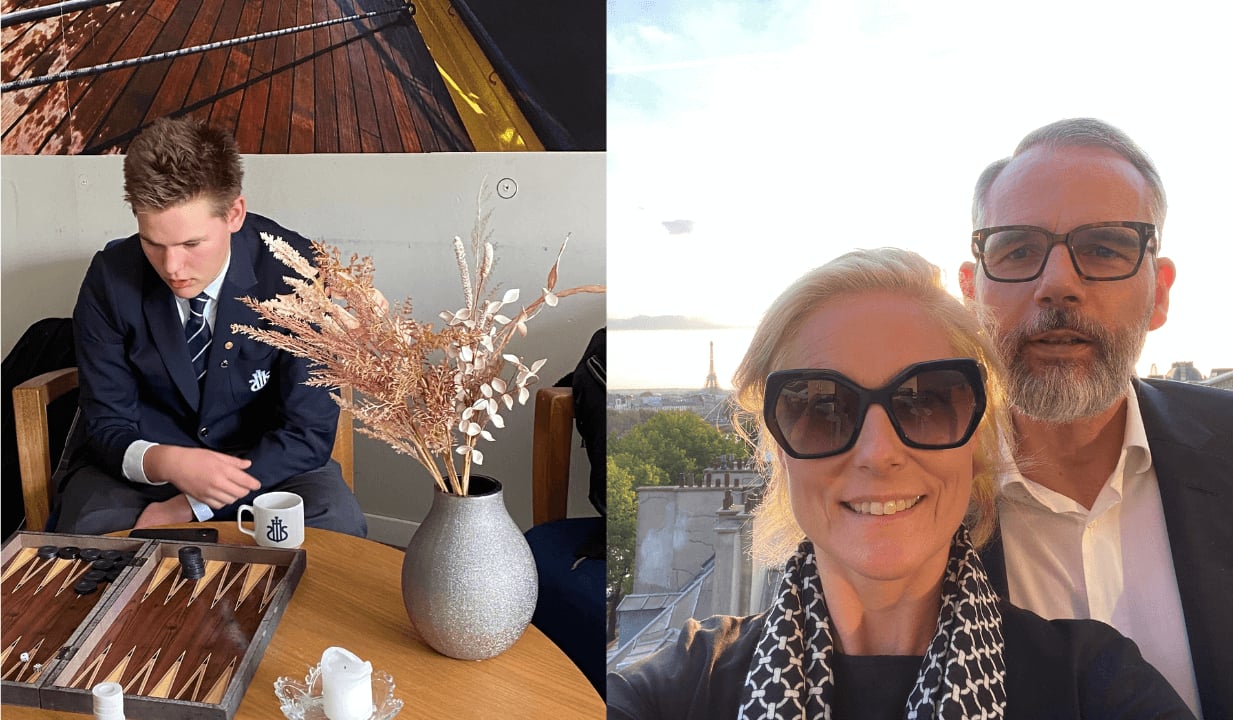From ‘new kid’ to a young ‘man on a mission’: How boarding school gave Axel skills for life
For young people to enjoy success in life, they increasingly need to develop skills that can't always be found in a textbook. Schools play an important role ensuring their students become well-rounded adults, both in and outside of the classroom. Here's how one student's boarding experience transformed him from a teenager, to a confident young man - ending up making a difference thousands of kilometres away from home.

The desire by parents for their children to develop important interpersonal skills early is understandable. Increasingly not only employers but also higher education institutions and universities indicate they want to see evidence of vital non-academic skills such as empathy, resilience and the ability to communicate effectively, alongside good grades and subject knowledge.
For example, a 2019 survey revealed 70 percent of universities considered developed interpersonal skills being of 'moderate' to 'considerable' importance in their admission choices - and that they look for them through involvement in extra-curricular activities such as team sports. Meanwhile, employers are consistently stressing the need for what they call ‘soft skills’ among their hires. These include, as Forbes writes, flexibility, curiousity, and the ability to think critically.
So, when French-Swedish couple Hugues and Mia Bourgeois decided to return to Europe from Hong Kong, they had a very clear goal in mind for their children’s education.
“We wanted Axel and his sister to connect with their roots. We felt that Sweden would be a great environment and we wanted to give them what we had experienced as children. We also wanted to prepare them for what lies ahead in life.” says Hugues.
Most of us would agree the skills young people need to thrive aren't exclusively academic. Often it can be the activities that a school might offer outside of the classroom that end up making all the difference in their personal development.
Finding the right learning environment for the Bourgeois children, therefore, was critical.
A new beginning
Axel picks up his story: “When we came back from Hong Kong, I went to another international school in Stockholm, but I wanted to change."
“A few years before SSHL (Sigtunaskolan Humanistiska Läroverket) came to present in Hong Kong about life at the school. So, in 2019, I went to the campus a few weeks before the start of the academic year. We discussed going there as a boarder. I thought the idea was very interesting.”
Hugues adds: “We had a very short period to decide whether Axel would go, but he said to us. 'You never know if something will work unless you try.' So he did!"
Axel continues, recalling his early days at the school.
"When I started at SSHL, I didn’t have someone looking over my shoulder. I had many new responsibilities like doing my laundry, for example. I wasn’t used to it, but I’d like to think I settled in very quickly.
“I had to live to learn together with people I didn’t know. If you have twenty people in a house, you’re not able to leave your socks or your dishes in the living room. Developing the skills to live with other students in my boarding house was one of the most important things I did.
"Boarding school is not for everyone, it takes a certain amount of discipline and self-control."
Outside the classroom, Axel was making the most of the opportunities SSHL gave him.
“I made good friends, and I tried new things. I am involved in the model United Nations, the Math Club, and the Backgammon Club. There are so many extracurricular activities!
“Last year, I joined the rowing team. We practise on Lake Mälaren, and I’ve taken part in two competitions. If you’re rowing, you need to be ‘in sync’ with everybody else. Coordination and teamwork on the lake are important and for that, you need to know how to communicate effectively.”
Not only was Axel enjoying a wide variety of activities at SSHL, but he learned to work effectively both in teams, and as a leader.
Building a better life for others
Recently, Axel put the skills he’s honed during his time at SSHL into practice, as he travelled to Africa together with the school’s ‘Kenya Project’ team.
“The 'Kenya Project' started 20 years ago and raises funds to help a village in Kenya. From small beginnings, it became really big - the project ended up building a school for around 100 students! It’s giving education to kids who wouldn’t receive it otherwise.”
“During our trip, we spent time with the children at the school, built football goals (that were put to good use!) and brought some computers that we gave to the teachers to help with lessons. We could see the school taking shape. I also taught some basic maths and it was very enjoyable.
“Honestly, I think we got more from that trip than we gave to the village. It made me reflect on my life. When we got back, I presented to my fellow students about what we did, and I think they’re excited to take part."
From little things, big things grow
Axel is not the only one who has noticed distinct personal growth since his start at SSHL. Both Hugues and Mia have seen tremendous growth in their son.
Hugues states: “He’s found a place that has truly nourished his potential. The support he received from the SSHL teachers and the boarding staff have been incredible. It has been an excellent decision sending him there.”
Adding to personal growth, Mia believes that the school has helped develop Axel’s thinking skills.
“What sums up Axel’s development is that he went from a fairly shy 14-year-old to a young man who could travel the world, and then share his reflections in front of 250 other students.
“I think the IB (International Baccalaureate) program at SSHL has helped him become well-rounded and developed his critical thinking skills. Part of that is the Theory of Knowledge subject - it has links to every subject and has helped him make important connections.”
With greatly increased confidence, and the ability to think critically - those vital ‘soft skills’ sought by universities and employers - it seems that Axel will be well-served for his entrance into the adult world.
 New horizons: Axel Bourgeois travelled with SSHL to help build a school in Kenya. Photo: SSHL
New horizons: Axel Bourgeois travelled with SSHL to help build a school in Kenya. Photo: SSHLAn exciting future
As his time at SSHL draws to a close, Axel feels that he is more than prepared for what awaits.
“After I finish I’d like to try working for a year, before studying. After that, I will probably end up doing engineering at university.
“Whatever I do, I want to create good environments - not just in work, but everywhere. It’s so important that we have a society where we can get along and people have a sense of belonging. I would like to use my skills to make that happen.”
This content was paid for by an advertiser and produced by The Local's Creative Studio.


Join the conversation in our comments section below. Share your own views and experience and if you have a question or suggestion for our journalists then email us at [email protected].
Please keep comments civil, constructive and on topic – and make sure to read our terms of use before getting involved.
Please log in here to leave a comment.